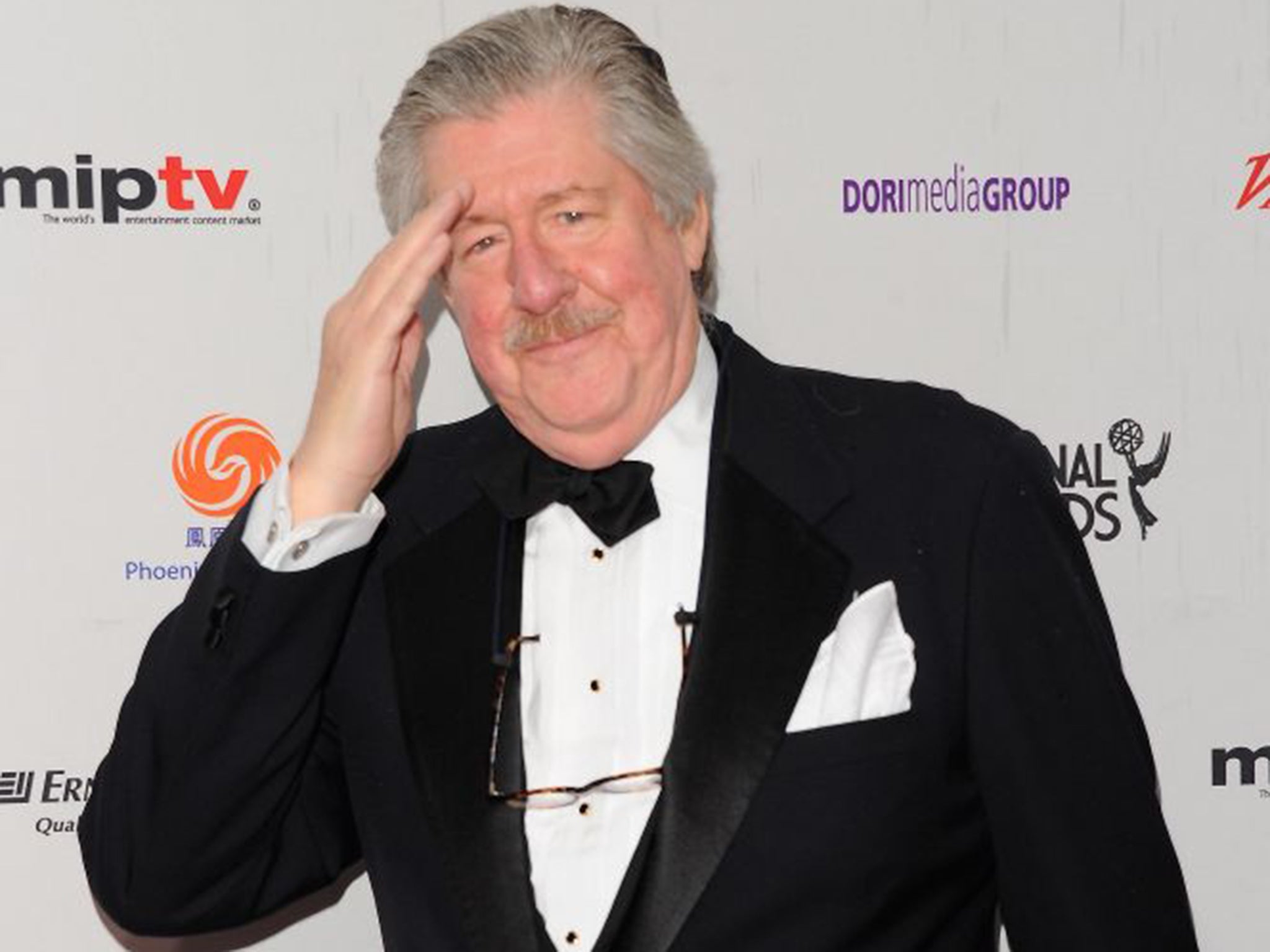Edward Herrmann: Character actor on screen whose air of Ivy League solidity and intelligence made him an ideal leading man on stage
During a two-hander in the West End, Herrmann became one of the few admitted to Sir Alec Guinness' circle of close friends

Edward Herrmann was a leading actor on stage and a valued character actor on screen. Possessing perfect diction, he conveyed an air of Ivy League intelligence and solidity. Although often cast as a rich poltroon or amiably ineffectual, he also had a firm grasp of emotional control; sometimes there was a look of real hurt just above that prominent chin.
During a two-hander in the West End, A Walk in the Woods (Comedy, 1988), which gave him equal billing with Sir Alec Guinness, he became one of the few admitted to the actor's circle of close friends. In a letter, Guinness described Herrmann as "a delightful man, very intelligent and well read and a very good actor indeed."
He was born in Washington; his father was an engineer of German descent. He studied at Bucknell University in Pennsylvania then took the London Academy of Music and Dramatic Art's one-year overseas course, and at Lamda's theatre in 1969 he played Justice Balance in the Restoration comedy The Recruiting Officer.
His New York stage debut was as a rumbustious soldier in The Basic Training Of Pavlo Hummel (Newman Theater, 1971), one of the nominal character's fellow conscripts in Vietnam. It also marked the start of his association with the voluble impresario Joseph Papp, and his Public Theater.
A campus-set comedy, Moonchildren (Royale, 1972), in which his fellow students included James Woods and future Spinal Tap member Christopher Guest, marked Herrmann's Broadway debut. As part of Papp's New York Shakespeare Festival, Herrmann was among the rude mechanicals in A Midsummer Night's Dream (Mitzi E Newhouse Theater, 1975); Demetrius was an unknown Richard Gere.
After playing Franklin D Roosevelt in two TV films, Eleanor and Franklin (1976) and Eleanor and Franklin: The White House Years (1977), he repeated the characterisation for John Huston in the original Annie (1982). His stepson named this as Herrmann's favourite part. Films often had him as real-life power brokers; Nelson Rockefeller in Nixon (1995), William Randolph Hearst in The Cat's Meow (2001), and film censor Joseph Breen in The Aviator (2004).
He played James Stewart's old role in The Philadelphia Story (Vivian Beaumont Theatre, 1980), with Katherine Hepburn's old one assumed by Blythe Danner, whom he later partnered in Terence Rattigan's The Deep Blue Sea (Criterion Center, 1998), as the unhappily married Collyers. In late 1982 David Hare's postwar drama Plenty, directed by the playwright, proved successful at Papp's Public Theater and transferred to the Plymouth Theatre on Broadway. Kate Nelligan, repeating her leading role from Hare's National Theatre production, and Herrmann as her diplomat husband, each won Drama League Awards.
One year after its original production, Tom and Viv by Michael Hastings was remounted as a collaborative venture between Papp and the Royal Court. In February 1985 it opened at the Public Theater with Herrmann as TS Eliot and Julie Covington as his doomed wife; a month later it was seen at Sloane Square.
A rare film lead was in a Disney comedy, The North Avenue Irregulars (1979), as Hill, a crime-fighting and at one point trouserless clergyman aided by housewives; the British release title was Hill's Angels. Another big screen speciality was an uncomprehending foil to a female star, usually as a husband; to Diane Keaton in Mrs Soffel (1984), Susan Sarandon in Compromising Positions (1985), and Bette Midler and Lily Tomlin in Big Business (1988).
Fathers were in his repertoire, as in The Electric Grandmother (NBC, 1982), initially reluctantly charmed by Maureen Stapleton in the title role; Richie Rich (1994), among a necessarily tall supporting cast after Macauley Culkin suddenly had a spurt in height during filming; and, most conspicuously, in the TV series Gilmore Girls (2000-07). His most unlikely patriarchal role was turning out to be leader of a vampire sect in The Lost Boys (1987).
A Walk In The Woods cast Herrmann as an American negotiator confronting Guinness's charmingly elusive Russian diplomat. Like his co-star, Herrmann was a Catholic convert, although he insisted to Guinness's biographer Piers Paul Read that this was a coincidence: "He gave me a kind of comfortable atmosphere in which to continue my own search." Guinness once sent him a holy relic, a chip of bone from an Italian saint.
In one of Papp's high-profile Shakespearean productions, Julius Caesar (1988), Al Pacino played Marcus Antonius and Martin Sheen Brutus. The oft-reviled critic Frank Rich felt Herrmann "has the makings of an excellent Brutus. Unfortunately, he has been cast as Cassius". In Psychopathia Sexualis (New York City Center, 1997) by John Patrick Shanley, Herrmann was a psychiatrist who confiscates his client's main sexual stimulus – a pair of socks.
He worked with Guinness once more, again as a browbeaten husband, in A Foreign Field (BBC, 1993), with Lauren Bacall, Jeanne Moreau and Leo McKern. Following Guinness's death in 2000 Herrmann remained in touch with his widow Merula, describing her "a tremendous spiritual force and the power behind the throne."
GAVIN GAUGHAN
Edward Kirk Herrmann, actor: born Washington 21 July 1943; married 1978 Leigh Curran (marriage dissolved; two daughters), 1993 Star Roman (one stepson); died New York 31 December 2014.
Subscribe to Independent Premium to bookmark this article
Want to bookmark your favourite articles and stories to read or reference later? Start your Independent Premium subscription today.

Join our commenting forum
Join thought-provoking conversations, follow other Independent readers and see their replies